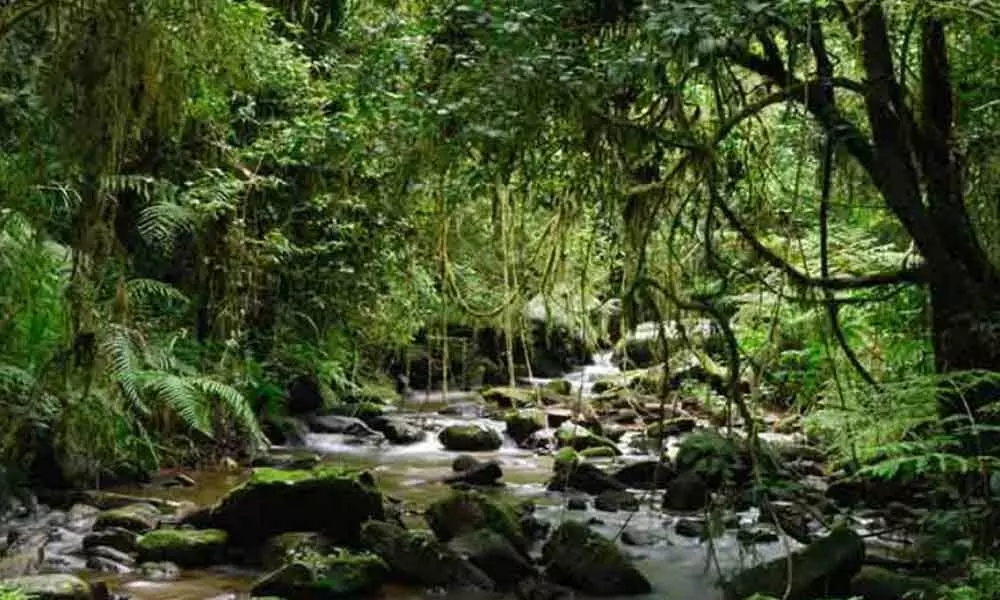Losing tropical forests six times more devastating on climate: Study

Losing tropical forests six times more devastating on climate: Study Losing intact tropical forests is six times more devastating on the climate than previously thought,
Melbourne : Losing tropical forests six times more devastating on climate: Study Losing intact tropical forests is six times more devastating on the climate than previously thought, according to researchers who suggest that preserving such lands with the help of indigenous people can bring climate mitigation benefits.
The results of their study, published in the journal Science Advances, revealed that the clearance of intact tropical forests between 2000 and 2013 resulted in a much greater level of carbon emitted to the atmosphere than initially believed -- with a 626 per cent increase in the calculated impact on climate.
The researchers, including Sean Maxwell from the University of Queensland (UQ) in Australia, said this difference equated to two years of global land-use change emissions, and was previously unaccounted for due to a lack of full carbon accounting.
"Usually only 'pulse' emissions are considered - these are emissions released the instant intact forest is destroyed. Our analysis considers all impacts such as the effects of selective logging, forgone carbon sequestration, expanding effects on the edges of forests, and species extinction," Maxwell said.
From the data, the researchers observed where selective logging was occurring based on where new roads were built, the extent of new forest edges based on where deforestation had recently occurred, and the loss of large seed-dispersing animals due to them becoming more susceptible to hunting.
"The team then estimated the amount of carbon that these processes will release into the atmosphere between 2013 and 2050, labelling it 'committed emissions'," Maxwell said.
The researchers determined the real impacts of deforestation by comparing 'pulse' and 'committed emissions' with how much carbon these forests could have removed from the atmosphere if they'd remained intact until 2050. "Losing Earth's remaining wilderness is devastating by itself, but climate impacts 626 per cent greater than expected is terrifying," said study co-author James Watson from UQ.
As of 2013, the study noted that there were 549 million hectares of intact tropical forest remaining globally. However, it said that the rate at which these forests were being lost was increasing, closing off opportunities for countries to use them in climate crisis mitigation efforts.
The researchers cautioned that more funding must be directed towards the conservation of intact forests, especially after the current study results about their larger-than-realised role in stabilising the climate.
"Intact forests are often critical to the material and spiritual aspects of traditional cultures," Maxwell said. He added that strengthening the land tenure of indigenous and traditional people is a powerful way to protect intact forests.

